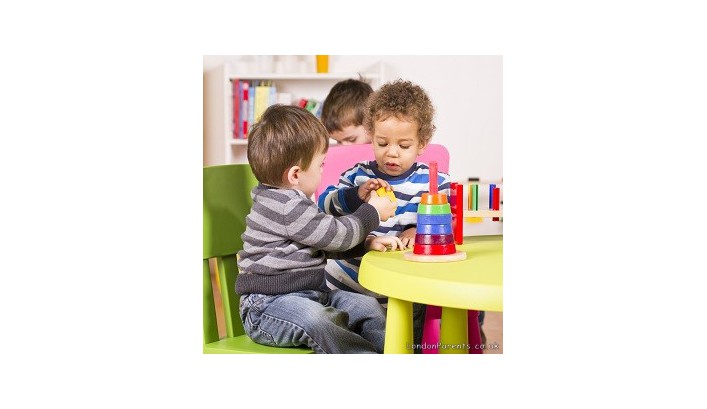-
20 July
-
04 November
-
10 July
-
12 June
-
05 June
-
24 September
-
19 September
-
10 May
-
26 April

Even at four or five years of age, expect selective sharing. A child may reserve a few precious possessions just for himself. The child is no more likely to share her treasured teddy or tattered blanket than you would share your wedding ring or the heirloom shawl your mother gave you. Respect and protect your child's right to his own possessions.
If your preschooler feels that his clothes, books, and toys are being manhandled, it's unlikely that he'll give them up even for a moment. So ask permission before you borrow his coloured pencils, and give him the option of saying no. Make sure that siblings, friends and babysitters respect his things too, by asking if they can use them and by taking care of them when they do.
Before playtime, ask your child if there's anything he'd rather not share, and help him find a good place to keep those special toys. Then ask him to think of some things that would be fun for him and his visitor to play with together, such as toy walkie-talkies, art and craft supplies, building blocks and sports equipment. That will put him in a sharing frame of mind when his guest arrives. Ask his friend to bring along a toy or two of his own as well, since your child may be more generous if he's not the only one doing the giving.
The best way for your toddler to learn generosity is to witness it. So share your ice cream with him. Offer him your scarf to fashion into a superhero's cape, and ask if you can try on his new hat. Use the word share to describe what you're doing, and don't forget to teach him that intangibles (like feelings, ideas and stories) can be shared too. Most important, let him see you give and take, compromise and share with others.
Make sharing fun. Teach your child cooperative games in which players work together toward a common goal. Do puzzles together, taking turns adding pieces, for instance. Share projects, too: water the plants, sweep the floor, or unpack the shopping with him. Finally, give him things to share with his friends now and then, like a special snack for nursery or a roll of stickers to divvy up during playtime.
Never yell at the toddler, but be firm in your reprimands. Yelling rarely gets you anywhere and does not set a good example. Don't punish stinginess.
If you tell your child that he's selfish, discipline him when he doesn't share, or force him to hand over a prized possession, you'll foster resentment, not generosity. To encourage sharing, use positive reinforcement rather than admonishment. Keep in mind, too, that it's OK for your child to hold back certain items. As he matures, he'll learn that sharing with friends – who are becoming increasingly important to him – is more fun than keeping things to himself.
If everything fails, remember this is probably a stage your toddler will outgrow. However, it is important to instill in your child that sharing and giving is important. Try not to give in to everything your toddler wants or buy your toddler a present every time you give another child or their sibling a present. Your child is little but also needs to understand the importance of sharing, and how heartwarming it is to share and cooperate with others.
Would you like to share your experience with others? Please do so in the comments below!
Related articles
- Odyssey will open its first UK campus in Marylebone, London, April 2025 - - The award-winning global preschool for children 0-5 ...
Read moreEPIC GLOBAL PRESCHOOL, ODYSSEY, COMING T...
Londonnews554XXXAn award-winning preschool offering from Asia is to open its first campus in London, bringing a new global ‘limitless learning’...
Read moreParenting is no easy task, and for Jordan and Briana Driskell, raising their quintuplets—Zoey, Dakota, Hollyn, Asher, and Gavin&mdash...
Read more0 comments
No messages yet




